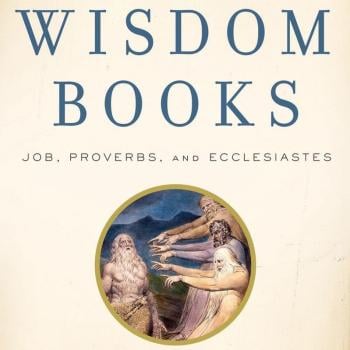Q. This work eschewed footnotes, except for the bare minimum of Scripture and classics references, which suggests that the primary audience for this work is the educated laity and perhaps Christian college and seminary students, and pastors. In that regard, it’s rather different than the two books Jerome Murphy O’Connor wrote on Paul and his life and letters. Would you do anything differently if you had set about to write a detailed scholarly account of Paul’s life with lots of footnotes and interaction with other scholars? Personally, I’m thankful that you wrote this at the level and the way you did— it’s very readable and can be used instantly with my students.
A. Had I gone the ‘lots-of-footnotes’ route I would have produced another book of over 700 pages and I was determined not to ask my readers to do that again. I had in mind the ‘general reader’, including students, and – I hope! – radio or TV: I want Paul to be seen as what he was, one of the primary public intellectuals of the ancient world (i.e. not just a ‘religious’ figure as people in our world tend to imagine).
Q. In terms of methodology, you take the work of Luke in Acts seriously, while at the same time recognizing that Luke has his own rhetorical style and aims in writing the way he does. What goes wrong if a person dismisses Acts as a reliable source of knowledge about the life and ministry of Paul, and just focuses on Paul’s letters, sometimes even just the capital Paulines?
A. All decisions to shrink the database for writing about Paul are themselves driven by a variety of agendas; in other words, though people sometimes present a decision to sideline Acts as careful evidence-based research, it is really a form of Cartesian scepticism, allied to the prejudices of Germany in the nineteenth century and (some parts of) America in the 20th, which didn’t want any firm historical basis for early Christianity . . . that’s another story. Serious history has to put all the evidence on the table and then figure out what to do with it, not decide in advance to eliminate most of it. Of course, Paul’s letters remain primary, but they do not stand alone.
Q. One thing that has occurred to me is that Luke is chronicling the evangelism and church planting work of Paul, not the later nurturing and discipling of those already converted by means of oral and written communications. This I think accounts for the fact that Luke has only one speech of Paul to Christians (Miletus address), and spends no time at all on Paul’s written follow up work with his converts by his letters. Yet the Miletus address and some of the other speeches suggest he knows some of Paul’s letters. Would you agree with this assessment?
A. Yes, I think that’s fair enough; and Luke is also presenting an argument to onlookers about ‘what Paul was really up to’. That is controversial too of course but I think it makes sense to think of Luke writing either to prepare for Paul’s defense in his trial in Rome or to present him to a subsequent generation as someone who, though doing all kinds of strange things, did not in fact pose the kind of social and cultural threat that some might have thought. (He did pose other kinds of social and cultural threats . . . this gets complicated . . .)















